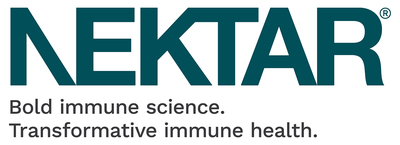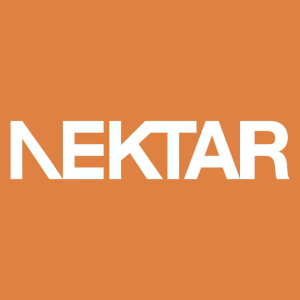New Data from REZOLVE-AD Study of Rezpegaldesleukin Presented in Late-Breaking Oral Abstract Presentation at ACAAI 2025 Annual Scientific Meeting
Rhea-AI Summary
Nektar Therapeutics (Nasdaq: NKTR) presented new REZOLVE-AD Phase 2b data at ACAAI on Nov 8, 2025 showing statistically significant, clinically meaningful improvements in asthma control and atopic dermatitis endpoints with rezpegaldesleukin.
In 99 patients with AD and asthma, mean ACQ-5 scores improved at Week 16 versus placebo (two dose arms p<0.05); placebo worsened. In patients with baseline ACQ-5 ≥0.5 (N=53) placebo-adjusted ACQ-5 reductions ranged 0.7–1.0; in uncontrolled asthma (N=25) reductions ranged 1.0–1.4. Rezpegaldesleukin 24 μg/kg q2w met primary and key secondary AD endpoints (EASI, EASI-75, EASI-90, vIGA-AD, itch) at Week 16 and supports a 24-week induction for Phase 3.
Positive
- ACQ-5 improvements vs placebo in asthma subgroup (two doses p<0.05)
- Placebo-adjusted ACQ-5 reductions 0.7–1.4 in symptomatic subgroups
- EASI/EASI-75/EASI-90/vIGA-AD all met at 24 μg/kg q2w at Week 16
- Supports 24-week induction dosing regimen into planned Phase 3
Negative
- Asthma subgroup sizes are small (<100), with N=53 and N=25 in key subgroups
- 52-week maintenance data remain pending, expected Q1 2026
News Market Reaction 1 Alert
On the day this news was published, NKTR gained 3.57%, reflecting a moderate positive market reaction.
Data tracked by StockTitan Argus on the day of publication.
Statistically significant and clinically meaningful improvements in mean ACQ-5 scores were reported at week 16 versus placebo in patients who had atopic dermatitis and a history of asthma
Extended dosing with rezpegaldesleukin q2w supports 24-week induction period for planned Phase 3 studies with improvement across major efficacy endpoints from Week 16 to 24, including EASI-75, EASI-90, and vIGA-AD
Data from long-term maintenance portion of REZOLVE-AD with 52 weeks of treatment expected in Q1 2026 from REZOLVE-AD study
Top-line Phase 2b data for rezpegaldesleukin in alopecia areata to be reported in December 2025
Rezpegaldesleukin is a first-in-class IL-2 pathway agonist and regulatory T-cell (Treg) biologic currently being studied in a Phase 2b study in moderate-to-severe atopic dermatitis (REZOLVE-AD) and a separate Phase 2b study in patients with severe-to-very-severe alopecia areata (REZOLVE-AA).
"Given that approximately one in four patients with atopic dermatitis also have asthma, improving asthma symptoms is a significant consideration in clinical treatment decisions," said lead author Dr. Jonathan Corren, Associate Clinical Professor of Medicine and Pediatrics at the David Geffen School of Medicine, University of
The Phase 2b REZOLVE-AD trial enrolled 393 patients with moderate-to-severe atopic dermatitis, of which 99 patients also reported having a history of asthma with ACQ-5 data available at both baseline and week 16. A pre-planned analysis in the study evaluated scores from a validated Asthma Control Questionnaire (ACQ-5) at baseline and at the end of the 16-week induction period. For the patients reporting a history of asthma, all three rezpegaldesleukin doses demonstrated an overall reduction in mean observed ACQ-5 scores at week 16 with two dose arms (24 μg/kg q2w and 24 μg/kg q4w) achieving statistical significance (p<0.05) as compared to placebo. Patients in the placebo arm reported an overall worsening of mean ACQ-5 scores.
Improvements were more pronounced in patients with only partly controlled or uncontrolled asthma:
-
In patients with a baseline ACQ-5 score of 0.5 or higher (N=53), at least half of the patients experienced clinically significant improvement (≥0.5 point reduction) in ACQ-5 at Week 16 across all treatment arms as compared to
13% in the placebo arm. - Placebo-adjusted reductions of mean ACQ-5 scores in the subset of patients with baseline ACQ-5 score of 0.5 or higher ranged from 0.7 to 1.0.
- Among the 25 patients with uncontrolled asthma at baseline (≥1.5 ACQ-5 score), all three active doses of rezpegaldesleukin demonstrated a meaningful improvement in mean observed ACQ-5 scores at Week 16 and all dose arms achieved statistical significance (p<0.05) as compared to placebo.
- Placebo-adjusted reductions of mean ACQ-5 scores in this subset of patients with uncontrolled asthma at baseline (≥1.5 ACQ-5 score) ranged from 1.0 to 1.4.
-
For the 24
μg/kg q2w treatment arm,
75% of patients with uncontrolled asthma at baseline had a clinically significant improvement (≥0.5 points reduction) in ACQ-5 at Week 16.
"These observations of improvement in asthma control in REZOLVE-AD support the broad potential of rezpegaldesleukin's Treg mechanism across multiple T-cell mediated inflammatory diseases," said Jonathan Zalevsky, Ph.D., Chief Research and Development Officer of Nektar. "The data demonstrate that rezpegaldesleukin could offer a unique and differentiated innovative treatment for atopic dermatitis, particularly as these findings have not been observed with other biologic mechanisms recently approved or in advanced development."
Overall, in REZOLVE-AD, rezpegaldesleukin 24 μg/kg q2w resulted in statistically significant improvements in the primary and secondary endpoints on all measurements of atopic dermatitis disease control as compared to placebo. Rezpegaldesleukin resulted in improvement of mean percent change in EASI (p<0.001), EASI-75 (p<0.001), EASI-90 (p<0.05), vIGA-AD 0/1 (p<0.05), and NRS-Itch response (≥4-point reduction) (p<0.01) at Week 16. This treatment effect was observed across baseline characteristics for severity of disease, region, and asthma comorbidity.
Results presented today also included data for a total of 42 placebo patients who crossed over at Week 16 and continued in the study on a treatment escape arm to receive high dose rezpegaldesleukin (24 µg/kg q2w). Based on observed data from these patients, EASI-75 response rate at crossover week 24 was
Details of the presentation at ACAAI are as follows:
- Abstract ID: 7005
- Oral Presentation: "Rezpegaldesleukin Novel Treg-Inducing Therapy Demonstrates Efficacy in Atopic Dermatitis and Asthma in Phase 2b Trial"
- Session Title: Distinguished Industry & Late-breaking Oral Abstracts - Session 2
- Presentation Date and Time: Saturday, November 8, 2025 at 5:33 PM ET
- Location: Room W231
The full presentation made today at the 2025 ACAAI Scientific Meeting is available on Nektar's website at http://www.nektar.com under Scientific Publications.
About REZOLVE-AD Phase 2b Study
The ongoing global Phase 2b REZOLVE-AD study (NCT06136741) enrolled 393 patients with moderate-to-severe atopic dermatitis who had not previously received treatment with biologic or JAK inhibitor therapies. Patients were randomized across three different dose regimens of subcutaneous rezpegaldesleukin or placebo for a 16-week induction treatment period. Following this period, rezpegaldesleukin-treated patients who achieved EASI percent score reductions of >50 (EASI-50) were re-randomized (1:1) to continue at the same dose level on a q4w or q12w regimen through study week 52 in a blinded maintenance period.
The primary endpoint of the Phase 2b study is mean improvement in EASI score at the end of the 16-week induction treatment period. Secondary endpoints include the proportion of patients achieving Validated Investigator Global Assessment (vIGA-AD) of 0 or 1, those achieving EASI-75, and those achieving a greater than or equal to a 4-point improvement in Itch Numeric Rating Scale (NRS). Preplanned exploratory endpoints include a full range of translational biomarker measurements and a change in asthma control questionnaire - 5 (ACQ-5) scores for patients with comorbidity of asthma.
This trial was initiated in October 2023 and enrolled patients across approximately 110 sites globally with:
About Rezpegaldesleukin
Autoimmune and inflammatory diseases cause the immune system to mistakenly attack and damage healthy cells in a person's body. A failure of the body's self-tolerance mechanisms enables the formation of the pathogenic T lymphocytes that conduct this attack. Rezpegaldesleukin is a potential first-in-class resolution therapeutic that may address this underlying immune system imbalance in people with many autoimmune and inflammatory conditions. It targets the interleukin-2 receptor complex in the body to stimulate proliferation of immune-modulating cells known as regulatory T cells. By activating these cells, rezpegaldesleukin may act to bring the immune system back into balance.
In February 2025, the
Rezpegaldesleukin is being developed as a self-administered injection for a number of autoimmune and inflammatory diseases. It is wholly owned by Nektar Therapeutics.
About Atopic Dermatitis
Atopic dermatitis is the most common type of eczema, affecting approximately 30 million people in
About Nektar Therapeutics
Nektar Therapeutics is a clinical-stage biotechnology company focused on developing treatments that address the underlying immunological dysfunction in autoimmune and chronic inflammatory diseases. Nektar's lead product candidate, rezpegaldesleukin (REZPEG, or NKTR-358), is a novel, first-in-class regulatory T cell stimulator being evaluated in two Phase 2b clinical trials, one in atopic dermatitis, one in alopecia areata, and in one Phase 2 clinical trial in Type 1 diabetes mellitus. Nektar's pipeline also includes a preclinical bivalent tumor necrosis factor receptor type II (TNFR2) antibody and bispecific programs, NKTR-0165 and NKTR-0166, and a modified hematopoietic colony stimulating factor (CSF) protein, NKTR-422. Nektar, together with various partners, is also evaluating NKTR-255, an investigational IL-15 receptor agonist designed to boost the immune system's natural ability to fight cancer, in several ongoing clinical trials.
Nektar is headquartered in
Cautionary Note Regarding Forward-Looking Statements
This press release contains forward-looking statements which can be identified by words such as: "could," "develop," "potential," "target," "address," "may" and similar references to future periods. Examples of forward-looking statements include, among others, statements regarding the therapeutic potential of, and future development plans for, rezpegaldesleukin, NKTR-0165, NKTR-0166, NKTR-422, and NKTR-255. Forward-looking statements are neither historical facts nor assurances of future performance. Instead, they are based only on our current beliefs, expectations and assumptions regarding the future of our business, future plans and strategies, anticipated events and trends, the economy and other future conditions. Because forward-looking statements relate to the future, they are subject to inherent uncertainties, risks and changes in circumstances that are difficult to predict and many of which are outside of our control. Our actual results may differ materially from those indicated in the forward-looking statements. Therefore, you should not rely on any of these forward-looking statements. Important factors that could cause our actual results to differ materially from those indicated in the forward-looking statements include, among others: (i) our statements regarding the therapeutic potential of rezpegaldesleukin, NKTR-0165, NKTR-0166, NKTR-422 and NKTR-255 are based on preclinical and clinical findings and observations and are subject to change as research and development continue; (ii) rezpegaldesleukin, NKTR-0165, NKTR-0166, NKTR-422 and NKTR-255 are investigational agents and continued research and development for these drug candidates is subject to substantial risks, including negative safety and efficacy findings in future clinical studies (notwithstanding positive findings in earlier preclinical and clinical studies); (iii) rezpegaldesleukin, NKTR-0165, NKTR-0166, NKTR-422 and NKTR-255 are in clinical development and the risk of failure is high and can unexpectedly occur at any stage prior to regulatory approval; (iv) data reported from ongoing clinical trials are necessarily interim data only and the final results will change based on continuing observations; (v) the timing of the commencement or end of clinical trials and the availability of clinical data may be delayed or unsuccessful due to regulatory delays, slower than anticipated patient enrollment, manufacturing challenges, changing standards of care, evolving regulatory requirements, clinical trial design, clinical outcomes, competitive factors, or delay or failure in ultimately obtaining regulatory approval in one or more important markets; (vi) a Fast Track designation does not increase the likelihood that rezpegaldesleukin will receive marketing approval in
Contacts:
For Investors:
Vivian Wu
VWu@nektar.com
Corey Davis, Ph.D.
LifeSci Advisors, LLC
cdavis@lifesciadvisors.com
212-915-2577
Ahu Demir, Ph.D.
LifeSci Advisors, LLC
ademir@lifesciadvisors.com
212-915-3820
For Media:
Jonathan Pappas
LifeSci Communications
857-205-4403
jpappas@lifescicomms.com
1. Eczema stats. National Eczema Association (2022, September 27). https://nationaleczema.org/research/eczema-facts
![]() View original content to download multimedia:https://www.prnewswire.com/news-releases/new-data-from-rezolve-ad-study-of-rezpegaldesleukin-presented-in-late-breaking-oral-abstract-presentation-at-acaai-2025-annual-scientific-meeting-302609374.html
View original content to download multimedia:https://www.prnewswire.com/news-releases/new-data-from-rezolve-ad-study-of-rezpegaldesleukin-presented-in-late-breaking-oral-abstract-presentation-at-acaai-2025-annual-scientific-meeting-302609374.html
SOURCE Nektar Therapeutics











